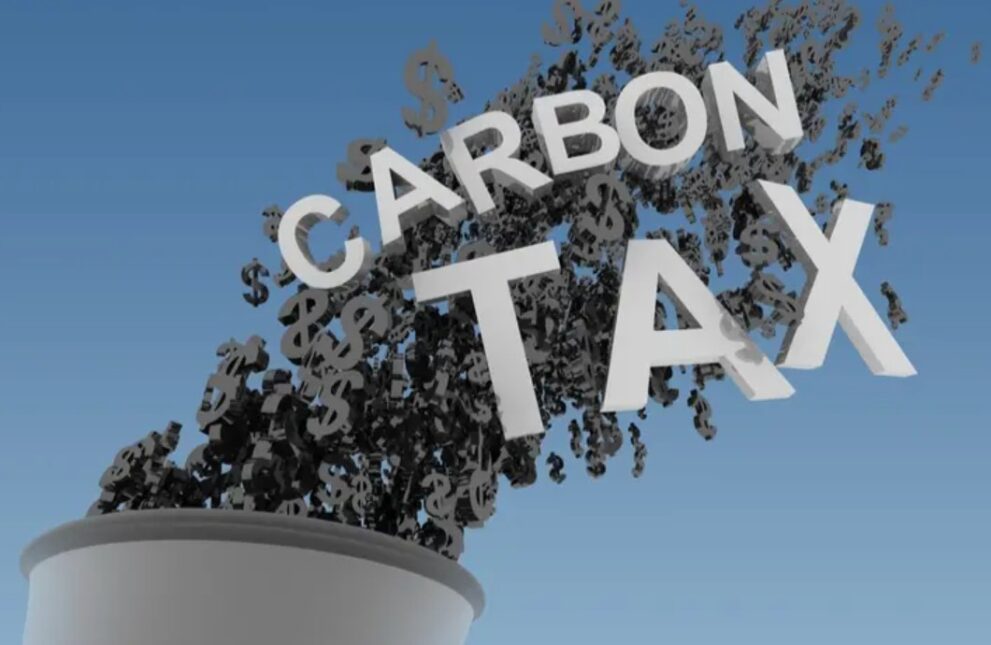Courtesy CTV NEWS
As Canada concludes its six-year national carbon tax initiative, preliminary findings indicate that the program has generated approximately $45 billion, yet it has had minimal immediate effects on carbon emissions.
It is important to note that carbon emissions have consistently decreased since the implementation of the Trudeau government’s Greenhouse Gas Pollution Pricing Act in 2019.

In 2018, Canada’s total greenhouse gas emissions were recorded at 747 megatonnes of carbon dioxide equivalent, based on data from the Government of Canada. By 2023, the most recent year for which data is available, this figure had fallen to 694 megatonnes, representing a reduction of roughly seven percent.
However, it remains challenging to ascertain the extent to which this decline can be attributed to carbon pricing versus existing decarbonization trends that were already in motion.
Canadian emissions have decreased even as the nation’s population and GDP have increased. Consequently, both per capita emissions and emissions relative to GDP have experienced significantly sharper declines during the period of the federal carbon tax.
Nevertheless, the reduction in emissions aligns closely with trends that were already established prior to the introduction of carbon pricing.
Since the year 2000, per capita emissions have been on a consistent downward trajectory, and the decrease in personal emissions observed during the period of the federal carbon price is comparable to the decline experienced during the nine years of Prime Minister Stephen Harper’s administration.

When Harper assumed office in 2006, the average Canadian was responsible for emitting 23.2 tonnes of carbon dioxide equivalent annually. By the time he left office in 2015, this figure had decreased to 20.8 tonnes.
In 2018, the last complete year without a federal carbon pricing mechanism, the average Canadian’s emissions were recorded at 20.2 tonnes of carbon dioxide equivalent. By 2023, this number had further declined to 17.3 tonnes.
The effects of the carbon price become even less clear when emissions are analyzed in relation to GDP.
Data from the Government of Canada indicates that the carbon footprint associated with each dollar earned in the Canadian economy has been on a significant downward trajectory since it peaked in 1996. At that time, every billion dollars produced in Canada was linked to approximately 540,000 tonnes of greenhouse gas emissions. Since then, this figure has consistently decreased by about 10,000 to 20,000 tonnes annually, a trend that has persisted following the implementation of federal carbon pricing.

It is important to note that the reduction in emissions observed in Canada over the past six years has also been mirrored in the United States, which does not have a national carbon tax.
In 2018, the U.S. economy emitted 5.27 billion metric tonnes of greenhouse gases, which decreased to 4.8 billion metric tonnes by 2023. This represents an 8.9 percent reduction, surpassing Canada’s seven percent decline.
The United States has experienced similar patterns to Canada regarding per capita emissions and emissions relative to GDP growth, both of which have been steadily declining since the 1990s.
At the same time, the six years during which the Canadian carbon tax has been in effect have coincided with a significant rise in global carbon emissions, primarily driven by China.
Although Canada is among the most carbon-intensive countries globally, the Government of Canada’s own statistics reveal that Canadian emissions have been decreasing, often in contrast to global trends.
According to an analysis by Environment and Climate Change Canada, similar to other economically advanced nations, Canada is expected to see a continued decrease in its share of emissions due to the anticipated rapid rise in emissions from developing and emerging economies, especially China.

Regarding the financial impact of the carbon tax on Canada, the most accurate data on the revenue generated by the program is derived from annual projections included in the federal budget. This information is typically found under a section labeled “pollution pricing proceeds to be returned to Canadians.”
In the fiscal year 2019, the federal budget reported $2.7 billion in revenue from “pollution pricing,” which increased to $12.7 billion in the most recent fiscal year. While a significant portion of this revenue was returned to Canadians as rebates, the total amount collected throughout the duration of the program has reached $44.9 billion.








